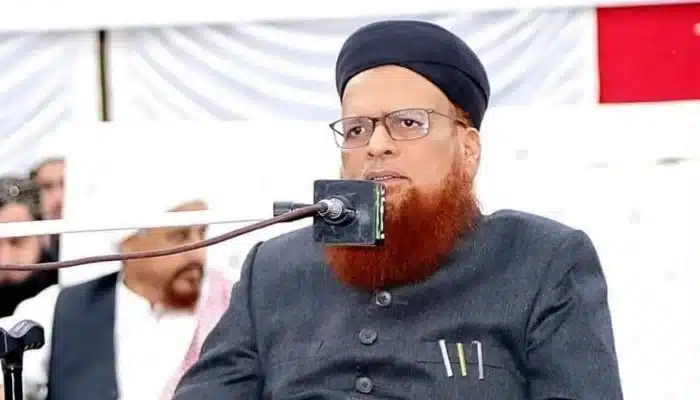In a significant leap forward for maternal and neonatal health, Pakistan has established its first Shariah-compliant Human Milk Bank at the Sindh Institute of Child Health and Neonatology (SICHN) in Karachi. This pioneering facility, developed in collaboration with UNICEF, aims to provide pasteurized donor milk to infants who cannot receive adequate breast milk from their mothers. This initiative marks a milestone in promoting infant health and nutrition in the region.

The Significance of the Human Milk Bank
The primary goal of the Human Milk Bank is to collect, process, store, and distribute human breast milk donated by lactating mothers. This service is crucial for hospitalized infants, particularly those who are premature or have low birth weight. Breast milk is vital for their growth and development, providing essential nutrients and antibodies that are not available in formula milk. Pasteurized donor milk serves as a lifesaving alternative when a mother’s milk is insufficient or unavailable, ensuring all infants receive the nutrition they need for optimal health.
Location and Establishment

Located at the Sindh Institute of Child Health and Neonatology (SICHN) in Karachi, this Human Milk Bank is a result of a collaborative effort with UNICEF. The SICHN is a leading institution dedicated to child health and neonatology, making it an ideal location for such a significant project. This collaboration underscores the commitment to improving maternal and infant health outcomes in Pakistan.
Why Shariah-compliant?
The Shariah-compliant nature of the Human Milk Bank is crucial in a predominantly Muslim country like Pakistan. Shariah compliance ensures that the milk bank operates within the religious and cultural norms that are important to the local population. This involves adhering to Islamic guidelines regarding milk donation and distribution, making the service accessible and acceptable to a wider community. The establishment of a “Human Milk Bank” for the buying and selling of human milk is impermissible (Haram/unlawful) according to a recent Fatwa (Islamic legal ruling) dated 10th of Dhu al-Hijjah 1445 AH by Sheikh ul-Islam Mufti Taqi Usmani. Therefore, the SICHN Human Milk Bank operates on a purely donation basis without any commercial transactions involved.
Operational Framework of the Milk Bank
The operational framework of the Human Milk Bank includes several key steps:
- Collection of Breast Milk: Lactating mothers who meet the eligibility criteria are invited to donate their excess milk.
- Processing and Pasteurization: The collected milk undergoes rigorous testing and pasteurization to ensure it is safe for infant consumption.
- Storage and Distribution: Pasteurized milk is stored under strict conditions and distributed to infants in need, primarily those in neonatal intensive care units (NICUs).
Eligibility for Donating Milk
Lactating mothers who wish to donate their milk must meet specific criteria to ensure the safety and quality of the donor milk. This includes a thorough screening process to check for any health issues or potential contaminants. The screening involves medical history, lifestyle checks, and blood tests to ensure that the milk is safe for the vulnerable infants who will receive it.
Taqi Usmani Fatwa
Sheikh ul-Islam Mufti Taqi Usmani, a prominent Islamic scholar, issued a significant Fatwa on the 10th of Dhu al-Hijjah 1445 AH, declaring the establishment of a “Human Milk Bank” for buying and selling human milk as impermissible (Haram/unlawful). This Fatwa holds considerable weight in the Muslim community, influencing beliefs and practices related to breastfeeding and the use of human milk.

Background of Human Milk Banks
Human milk banks are facilities that collect, screen, process, and dispense human milk donated by lactating mothers. These banks aim to provide milk to infants who, for various reasons, cannot be breastfed by their biological mothers. Globally, human milk banks play a crucial role in neonatal care, especially for premature and ill infants who benefit significantly from human milk.
Islamic Perspective on Human Milk
In Islam, breastfeeding is highly encouraged, and it is seen as a right of the child. The concept of “milk kinship” in Islamic teachings holds that children who are breastfed by the same woman are considered milk siblings and are forbidden from marrying each other. This principle underscores the significance of breastfeeding in Islamic culture and law.
Details of the Fatwa
The Fatwa issued by Sheikh ul-Islam Mufti Taqi Usmani on the 10th of Dhu al-Hijjah 1445 AH is a comprehensive ruling against the establishment of human milk banks for commercial purposes. The key points of the Fatwa emphasize that buying and selling human milk violate Islamic principles and that such practices are Haram.
Reasons for the Fatwa
The Fatwa is based on several religious, ethical, and moral grounds. Religiously, the commercialization of human milk is seen as exploitative and contrary to the dignity of the human body. Ethically, concerns arise regarding the potential for abuse and inequity, where the poor might be pressured to sell their milk, leading to exploitation.


